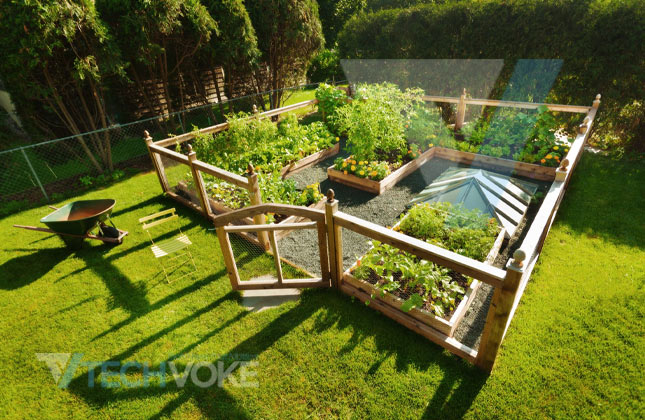Deer are beautiful animals, but they can be a nuisance in gardens. They can cause significant damage to plants and flowers, which can be frustrating for gardeners. One of the most effective ways to keep deer out of your garden is to install deer fences. There are many types of deer fencing available, each with its own advantages and disadvantages. In this article, we will explore the pros and cons of seven common deer-proof garden fences.
Electric Fence
An electric fence is a highly effective way to keep deer out of your garden. The fence uses an electric current to create a barrier that deer will not cross. The fence can be made from a variety of materials, including metal or plastic. The electric current is generated by a charger that is connected to the fence. When a deer touches the fence, it receives a shock that deters it from trying to enter the garden.
Pros:
- Highly effective at keeping deer out
- Can be customized to fit the shape and size of your garden
- Easy to install
Cons:
- Can be dangerous for humans and pets
- Requires maintenance and monitoring to ensure it is working correctly
- Can be expensive to install and maintain
Chain Link Fence
A chain link fence is a popular choice for deer-proofing gardens. The fence is made from interlocking steel wires that create a strong and durable barrier. The fence is easy to install and can be customized to fit the size and shape of your garden. It is also low-maintenance and does not require any special equipment to install.
Pros:
- Strong and durable
- Easy to install
- Low-maintenance
Cons:
- Not the most aesthetically pleasing option
- Can be expensive depending on the size of your garden
- May not keep out smaller animals like rabbits and squirrels
Wooden Fence
A wooden fence is a traditional and attractive option for deer-proofing your garden. The fence is made from wood and can be painted or stained to match the aesthetic of your garden. It is also strong and durable, making it an effective barrier against deer.
Pros:
- Attractive and can be customized to match the aesthetic of your garden
- Strong and durable
- Provides a physical barrier that deer cannot cross
Cons:
- Can be expensive to install and maintain
- Requires regular maintenance to prevent rot and damage from weather
- Can be prone to warping and cracking over time
PVC Fence
A PVC fence is a low-maintenance and affordable option for deer-proofing your garden. The fence is made from vinyl, which is strong and durable. The fence can be customized to fit the size and shape of your garden and can be painted to match the aesthetic of your garden.
Pros:
- Low-maintenance and easy to clean
- Affordable
- Can be customized to fit the size and shape of your garden
Cons:
- Can be damaged by extreme weather conditions
- May not be as effective as other options at keeping out deer
- Can be less durable than other options over time
Woven Wire Fence
A woven wire fence is a strong and durable option for deer-proofing your garden. The fence is made from interlocking wires that create a barrier that deer cannot cross. The fence can be customized to fit the size and shape of your garden and is easy to install.
Pros:
- Strong and durable
- Provides a physical barrier that deer cannot cross
- Easy to install
Cons:
- Not the most aesthetically pleasing option
- Can be expensive to install and maintain
- May not be effective at keeping out smaller animals like rabbits and squirrels
Deer Netting
Deer netting is a lightweight and affordable option for deer-proofing your garden. The netting is made from durable materials like polypropylene and can be easily draped over plants and shrubs. The netting creates a physical barrier that deer cannot pass through.
Pros:
- Lightweight and easy to install
- Affordable
- Can be easily removed and stored when not needed
Cons:
- May not be as effective at keeping deer out as other options
- Can be difficult to maintain if plants and shrubs grow through the netting
- Can be damaged by extreme weather conditions
Living Fence
A living fence is a natural option for deer-proofing your garden. A living fence can be created by planting dense shrubs or trees around the perimeter of your garden. The plants create a physical barrier that deer won’t cross.
Pros
- Natural and aesthetically pleasing option
- Provides habitat and food for other wildlife
- Can improve the overall health and biodiversity of your garden
Cons
- Can take years for the plants to grow dense enough to create an effective barrier
- May require regular pruning and maintenance to keep the plants healthy and dense
- May not be effective at keeping out smaller animals like rabbits and squirrels
Conclusion
There are many options available for deer-proofing your garden, each with its own advantages and disadvantages. Electric fences, chain link fences, wooden fences, PVC fences, woven wire fences, deer netting, and living fences are all effective ways to keep deer out of your garden. Consider the size and shape of your garden, your budget, and your personal aesthetic preferences when choosing a deer-proof fence for your garden. With the right fence in place, you can enjoy a beautiful and healthy garden without the frustration of deer damage.


